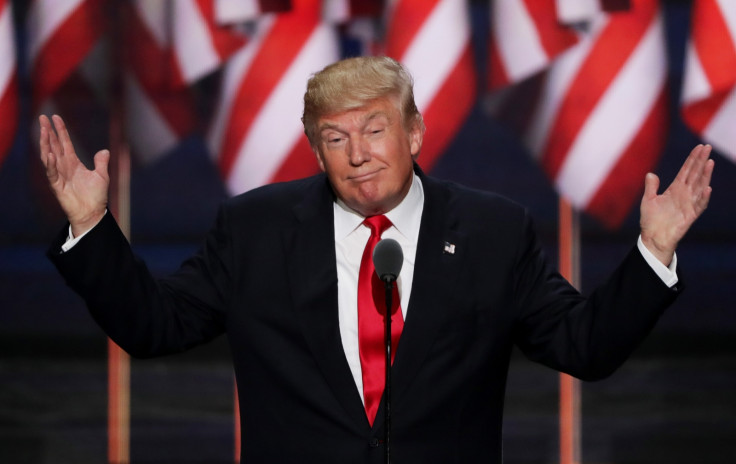Could Donald Trump be charged with treason for urging Russia to steal Hillary Clinton's emails?
Legal experts weigh in on comments by the 'Siberian candidate'

Many Americans were stunned when Republican presidential candidate Donald Trump urged Russia to "find" — apparently in a hacking operation — Hillary Clinton's deleted emails that could conceivably include classified information. The Clinton campaign raised the spectre of "espionage", and voters were left wondering if Trump had indeed broken any laws.
Could Trump be charged with treason by appearing to encourage a foreign power to hack into a former secretary of state's emails? (Clinton insists they were all personal and not classified.) The answer is no — but the jury is not entirely in on whether other charges could be possible.
As for treason, "legally speaking, there's no actual item here," Mark Zaid, an attorney specialising in national security law, told Slate. "It would have to be more than just words. It would be taking action against the United States in specific, actual situations."
Treason also specifically deals with aid to an enemy, according to other experts, which Russia officially is not.
But Trump may have run afoul of another federal law that makes it a crime for an individual to induce others to commit felonies involving physical force against American property — which "almost certainly includes cyberhacking", according to CNN legal analyst Steve Vladeck.
And national security law expert Bradley Moss told the Daily Beast that because Trump appeared to be encouraging Russia to take "imminent lawless action," he could "theoretically be charged as a conspirator under the Computer Fraud and Abuse Act, which carries a maximum penalty of 10 years in prison."
That's extremely unlikely, though, acknowledges Moss, because the federal Justice Department wouldn't be eager to handle a political hot potato.
Moss did call Trump's comments the "most egregiously stupid thing I've ever heard a party nominee say ever".
The brouhaha erupted when Trump said at a Florida press conference: "Russia, if you're listening, I hope you're able to find the 30,000 emails that are missing. I think you will probably be rewarded mightily by our press."
His comments followed a massive leak of emails embarrassing to the Democratic Party that US security officials are convinced was the work of Russian hackers likely as part of a government bid to swing the election toward Trump, who speaks fondly of Russian President Vladimir Putin and has business dealings in the country.
The GOP candidate is now being snidely referred to by some as the "Siberian candidate," a play on the Manchurian Candidate, a movie about brainwashed American moles positioned by the Chinese to take over US political posts.
Former CIA director Leon Panetta, a Clinton ally, denounced Trump's "irresponsible" comments from the floor of the Democratic National Convention, saying that the presidential candidate "asked the Russians to interfere in American politics".
Panetta told CNN: "No presidential candidate who's running to be president of the United States ought to be asking a foreign country, particularly Russia, to engage in hacking or intelligence efforts to try to determine what the Democratic candidate may or may not be doing."
A Trump spokesman insisted the candidate was not encouraging law-breaking, but only urging Russia to hand over emails hackers may have already obtained.
But in another comment bound to please Russia and rattle others, Trump said he would be "looking at" whether Crimea, which Russia seized from Ukraine in 2014, should be officially recognised by the US as Russian territory.
He has also repeatedly questioned the need for Nato, the main Western bulwark against Russia: He told an Ohio rally crowd that if a nation that has not paid enough toward defence costs asks for help, he would respond: "Bye bye".
In a recent interview with the New York Times he said he would protect the smaller Baltic nations in the event of a Russian invasion only if they met their financial "obligations".
© Copyright IBTimes 2025. All rights reserved.





















